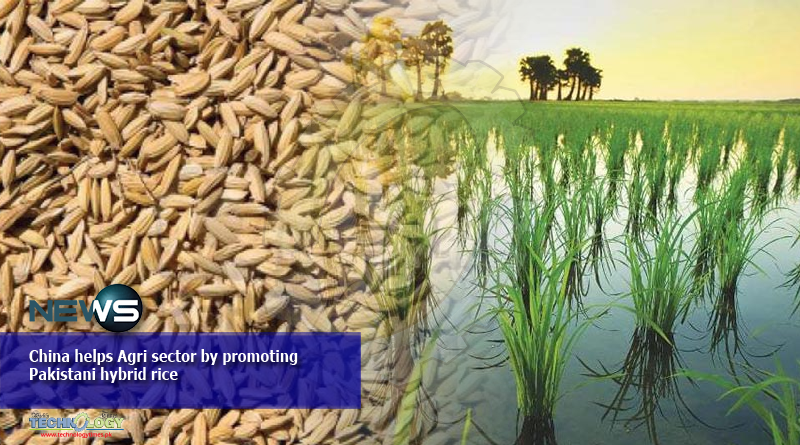China helps in improving the agriculture sector of Pakistan to feed the entire populace by promoting Pakistani hybrid rice.

“Agribusiness in Pakistan despite everything depends intensely on labor and my objective is to advance progressed agrarian innovations and crossover rice to improve rice creation and ease the weight of farmers,” a young Chinese agronomist, Dai Yingnan, said. Dai has been promoting the agriculture and hybrid rice in Pakistan for a long time.
Conceived in a town of Liaoning area in upper east China, Dai developed corn and rice with his folks when he was young and has a profound comprehension of the hardship of farmers.
“Following the exhortation of my instructor, I decided to learn agronomy at Hunan Agriculture University,” Dai told while talking to a media person. “Since not many students would select this major, which had solid connects to cultivating, it turned into a more secure decision for me to go to this institute.”
Dai lamented his decision for quite a while in light of the fact that he was of the view that he would turn into a rancher in the wake of accepting four-year instruction in school.
The defining moment showed up when Dai, as a delegate of his university, had a chance to converse with Yuan Longping, who is known as the father of hybrid rice.
“At the point when I was befuddled about the possibility of agronomy, the regarded man disclosed to me that farming was the establishment of a nation,” he said. “Simultaneously, it is a moderate developing industry that requests a great deal of time and individuals committed to it.”
Following his graduation in 2017, Dai acknowledged a proposal at Yuan Longping High-Tech Agriculture Company and was later sent to Pakistan to advance cross breed rice.
Prior to his profession, Dai never figured he would adore the work until he got abandoned at home for practically a large portion of a year because of the Covid-19 pandemic.
“I truly miss the farmlands in Pakistan,” Dai said. As indicated by him, completing exploration and advancing the manor of mixture rice in Pakistan was not a simple errand.
Out of thousands of seeds, Dai needed to choose the one which was generally reasonable for the local conditions. This errand itself requested long stretches of understanding.
Perhaps the most ideal approaches to locate the correct seed were to plant half breed rice in test fields, watch it cautiously and record subtleties of the developing procedure from planting and sprouting to definite reap.
One absent or bogus record would prompt disappointment of the investigation and that generally squanders, at any rate, a large portion of a year,” he said. Pakistan’s torrid climate was another large test for the little fellow as temperature could arrive at almost 50 degrees in summer.
During harvest each year, the yield of Pakistani hybrid rice is clearly higher than the privately developed rice and here and there even twice by examination, Dai said.
